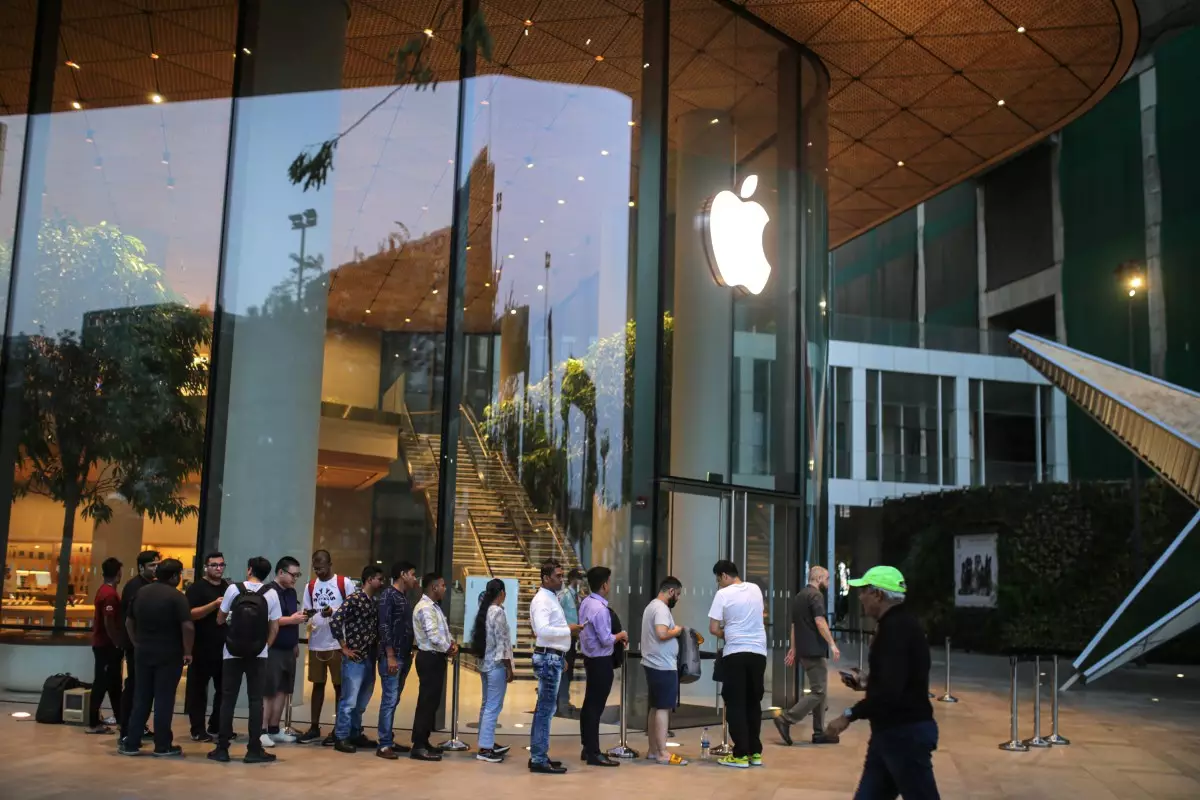Apple Inc. has set its sights firmly on expanding its foothold in India, a country recognized as the second-largest smartphone market globally. The tech giant is poised to unveil four new retail stores, targeting metropolitan areas such as Bengaluru, Pune, Delhi-NCR, and Mumbai. This strategic move comes on the heels of its initial foray into the Indian retail landscape, marked by the successful launch of its first two outlets in Mumbai and New Delhi in the preceding year. Apple’s intention to deepen its engagement in this vibrant market underscores the broader narrative of its ongoing globalization strategy.
In addition to retail expansion, Apple has taken significant strides in domestic manufacturing by producing the iPhone 16 Pro models within India. Having initiated its manufacturing operations in the country back in 2017 with the iPhone SE, this recent move represents a crucial step towards self-reliance and localization of production. The Indian market presents a vital opportunity for Apple as it seeks to diversify its manufacturing base, particularly amid ongoing geopolitical tensions and disruptions in China. By localizing production, Apple not only mitigates supply chain risks but also tailors its strategies to meet the surging demand within the Indian consumer landscape.
Despite these optimistic developments, analysts from J.P. Morgan have indicated that Apple’s timeline for shifting a more significant portion of its iPhone manufacturing to India is taking longer than projected. The bank has revised its expectations, indicating that Apple may achieve 20-25% of its iPhone production in India by 2027, a slight delay from the previously anticipated 2025 timeline. Currently, it is estimated that 10-15% of Apple’s smartphone output is manufactured in India. This cautious optimism reflects the complexities associated with transitioning production lines and scaling up operations in a new geographic region.
Apple’s investment in India seems well-timed, given the impressive growth metrics reported for 2023. The company’s revenue saw a remarkable 42% surge year-on-year, reaching a staggering $8.7 billion. Moreover, iPhone shipments in India experienced a robust 39% increase, amounting to 9.2 million units sold, positioning India as Apple’s fifth-largest market globally. Notably, Apple’s business in India surpassed revenue levels from any single country in the European Union, illustrating the immense potential that lies in this burgeoning market.
The essence of Apple’s strategy transcends the mere transactional; it emphasizes establishing a deeper connection with Indian consumers. According to Deirdre O’Brien, Apple’s senior vice president of Retail, the company is excited to grow its local teams and enhance customer experiences in India. This focus on a knowledgeable and engaged workforce is indicative of Apple’s commitment to not just sell products, but also foster community and brand loyalty among local consumers. As Apple continues to innovate and expand, its endeavors in India could serve as a template for future global expansion initiatives.
Apple’s strategic expansion efforts in India reflect a nuanced understanding of the market, its potential, and the importance of local engagement. With a combination of retail growth and domestic manufacturing, Apple is not only securing its place in a competitive landscape but is also marking a significant chapter in its global journey.

